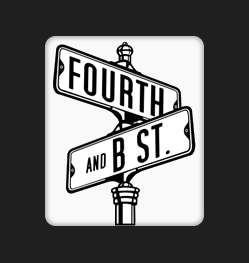Like few others, this legendary English virtuoso achieves exceptional depth and dimension in his playing. Eloquent and electrifying, he makes his guitar sigh, moan, laugh, soar, dive, ring, squeal, shimmy and shake, but always in service of the song at hand (and almost always using only his fingers, rather than a pick).
More impressive, he retains a singular level of musicality that doesn’t sacrifice artistry for visceral impact, or subtlety for primal force, even though his music has plenty of power to spare. And he produces such a dazzling array of tonal colors and emotional shadings that he “sings” like a master, without ever opening his mouth.
Beck is also that rare performer who can play with intensity and taste at the same time. This made his 91-minute set here an almost unqualified delight.
His first San Diego club date in memory (and his first area appearance since a 1999 SDSU Open Air Theatre gig), the sold-out show found this youthful 61-year-old looking back at length at his storied past, something he had not done prior to his tour of Japan last year. The resulting musical retrospective touched upon many, though not all, phases of a career that first ignited when Beck replaced Eric Clapton in the Yardbirds in 1965.
His repertoire Thursday didn’t stretch back quite that far, although he did open with “Beck’s Bolero,” the B-side of his first solo single from early 1967. The selections that followed covered a nearly 40-year span yet complimented each other well. Highlights included charged renditions of such Beck favorites as “Led Boots” and “Blue Wind”; the proto-blues-metal of “You Shook Me”; a blazing version of the Billy Cobham fusion-jazz classic, “Stratus”; and the sublime balladry of Nitin Sawhey’s “Nadia” and Curtis Mayfield’s gospel-fueled “People Get Ready.”
“People” was one of five selections that featured Beth Hart, the first female vocalist in any of Beck’s many touring bands (San Diego guitar great Jennifer Batten worked with him in the late 1990s and beyond). While Hart sang with unmistakable enthusiasm, she tended to over-emote almost every lyric, belting line after line with no sense of the nuance her employer so adroitly brought to each number.
On “Morning Dew,” she gamely tried to emulate the young Rod Stewart, while “Going Down” found her referencing early-’70s Beck band singer Bobby Tench. Hart never rose above overwrought mimicry, although Beck clearly enjoyed her energetic delivery and gyrating stage moves.
Far better were bassist Pino Palladino (The Who, John Mayer) and drummer Vinnie Colaiuta (Frank Zappa, Joni Mitchell), whose rock-solid grooves and improvisational savvy rank them as one of the best rhythm sections Beck has had.
Keyboardist Jason Rebello (like Colaiuta, a veteran of Sting’s backing group) is a skilled ensemble player, but his solos didn’t ignite like Beck’s. Then again, no keyboardist has been able to really hold his own on stage with the guitarist since synthesizer wiz Jan Hammer in the mid-1970s.
Beck used a bottleneck on some songs, even playing it upside down during the rhapsodic “Angels (Footsteps).” His solos, all gems of emotion and technical ingenuity, showcased his pinpoint accuracy and masterful use of space and silence to build dynamic tension.
He also showed just how fresh the blues can sound when performed with skill and daring. And his playfulness extended to the fan who jokingly thumbed his nose at the guitarist. Beck responded by holding up his middle finger. “I didn’t mean that,” he told his adoring audience a moment later, but the impish grin on his face left no doubt that he did.
George Varga, [email protected]

